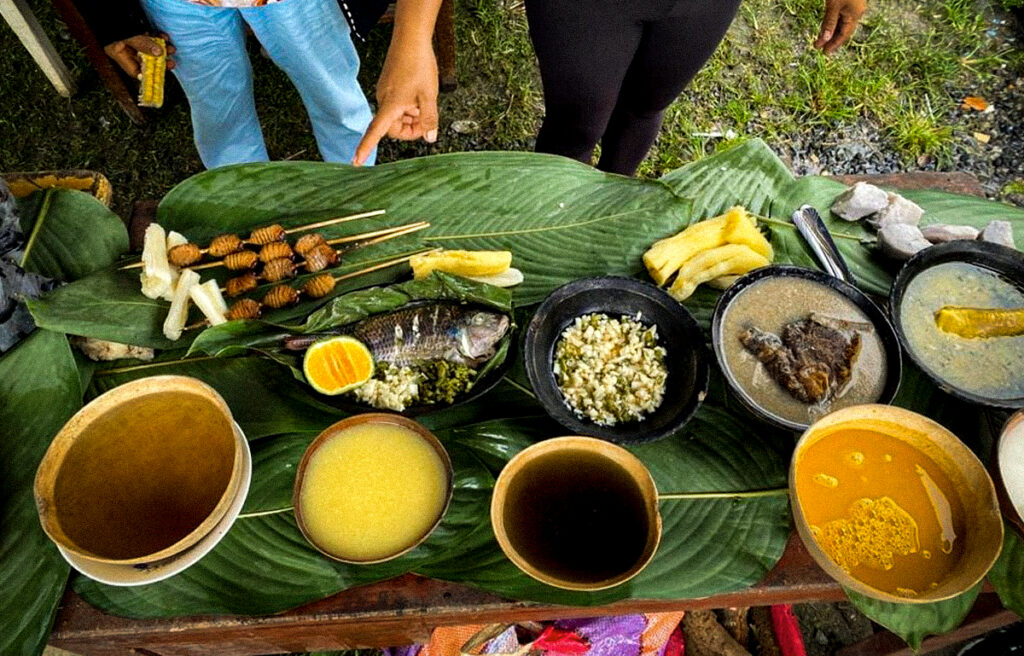Introduction
As the world becomes more connected, there’s a growing desire to rediscover what makes cultures unique—especially through food. In 2025, the culinary spotlight is turning toward indigenous and ancestral cuisines, honoring traditions passed down through generations. These movements are more than trends; they’re part of a broader cultural awakening that values authenticity, sustainability, and heritage.
This article explores the revival of cultural cuisines, the chefs and communities behind them, and how ancestral food traditions are reshaping the way we eat and think about food.
1. Why Ancestral and Indigenous Foods Are Making a Comeback
Rooted in Identity and Resilience
Indigenous and ancestral cuisines represent more than just ingredients—they’re a reflection of:
-
Cultural identity
-
Historical resilience
-
Sustainable practices
Amid globalization and industrialized food systems, many communities are reclaiming their food traditions as an act of preservation, pride, and resistance against cultural erasure.
Keywords: ancestral food revival, indigenous cooking traditions, traditional cuisine 2025, cultural food identity
2. The Role of Chefs and Culinary Activists
Food as Storytelling and Advocacy
In 2025, chefs around the world are using their platforms to celebrate ancestral knowledge. From Native American chefs in the U.S. to Filipino, Peruvian, and West African culinary voices, these leaders are:
-
Reviving old recipes
-
Educating diners
-
Promoting food sovereignty
Notable culinary figures include:
-
Sean Sherman (U.S.) – Promotes Native American “pre-colonial” cuisine
-
Mitsuharu Tsumura (Peru) – Celebrates Nikkei and Andean culinary traditions
-
Selassie Atadika (Ghana) – Blends fine dining with African roots
Keywords: indigenous chefs 2025, culinary activism, food sovereignty, cultural cuisine leaders
3. Sustainability Through Ancestral Wisdom
Eating in Harmony With the Earth
Many ancestral food systems are inherently sustainable, emphasizing:
-
Seasonal, local ingredients
-
Nose-to-tail and root-to-leaf cooking
-
Natural preservation techniques (fermentation, drying, smoking)
These methods reduce food waste and environmental impact, aligning perfectly with modern sustainability goals.
Keywords: sustainable ancestral food, traditional food systems, eco-friendly cooking, regenerative cuisine
4. Rediscovering Forgotten Ingredients
From Heirloom Grains to Wild Herbs
2025 has seen a renewed interest in lost or underused ingredients:
-
Teff and fonio (Africa)
-
Wild rice and amaranth (Americas)
-
Lotus root, finger millet, and sorrel (Asia)
These ancient ingredients are not only nutrient-dense but also deeply tied to the flavor profiles and health practices of traditional cuisines.
Keywords: heirloom ingredients, traditional superfoods, ancient grains 2025, indigenous pantry staples
5. Cooking Techniques Passed Through Generations
Wisdom in the Method
Traditional cooking methods are making their way back into kitchens:
-
Earth ovens (e.g., Hawaiian imu, Māori hangi)
-
Stone grinding (used for masa, grains, spices)
-
Open fire roasting and pit-smoking
-
Clay pot and tagine cooking
These techniques infuse food with unique textures and flavors while preserving cultural narratives.
Keywords: traditional cooking methods, ancestral techniques, earth oven recipes, clay pot meals
6. Food and Cultural Preservation
Beyond the Plate
For many communities, food revival efforts go hand-in-hand with language preservation, land reclamation, and spiritual practice. Indigenous food is often inseparable from:
-
Ceremonies and rituals
-
Seasonal harvest cycles
-
Community gatherings and oral history
Supporting these movements is about more than eating well—it’s about supporting cultural survival.
Keywords: food and culture, indigenous food systems, culinary heritage preservation, cultural storytelling through food
7. Restaurants and Experiences Reviving Ancestral Cuisines
Dining With Depth and Meaning
In 2025, diners are seeking more than just good food—they want cultural immersion. Restaurants embracing ancestral themes focus on:
-
Authentic storytelling menus
-
Locally sourced and foraged ingredients
-
Interactive dining experiences, including music, history, and art
Some globally recognized names:
-
Owamni (USA) – Modern Indigenous cuisine
-
Ekstedt (Sweden) – Nordic ancestral cooking over fire
-
Lima Floral (UK) – Celebrates Peruvian and Andean flavors
Keywords: ancestral dining, cultural restaurants 2025, immersive food experiences, heritage-based menus
8. Home Cooks Embracing Cultural Roots
Reconnecting Through the Kitchen
Many people are turning to family recipes and cooking traditions to reconnect with their roots. In 2025, online communities, food blogs, and YouTube channels are filled with:
-
Grandparent-style recipes
-
Traditional meal prep routines
-
Cultural cooking challenges and collaborations
This grassroots movement is helping preserve culinary legacies for younger generations.
Keywords: family recipes revival, home cooking traditions, cultural food blogs, cooking heritage at home
9. Challenges in Reviving Ancestral Cuisine
Access, Authenticity, and Misappropriation
Despite its growth, the ancestral food movement faces challenges:
-
Lack of access to traditional lands and ingredients
-
Misappropriation of cultural dishes by mainstream chefs
-
Over-commercialization without giving back to communities
Ethical revival requires respect, credit, and collaboration with the cultures that created these traditions.
Keywords: cultural food ethics, food appropriation issues, respectful culinary revival, indigenous food rights
10. The Future: Cultural Cuisine in a Modern World
Balancing Tradition and Innovation
Ancestral food isn’t about the past—it’s shaping the future of how we eat. Chefs and home cooks are blending heritage with innovation:
-
Traditional ingredients in modern formats (e.g., fonio pasta)
-
Story-based cookbooks and documentaries
-
Community gardens and seed-sharing programs
In 2025, food is both cultural memory and creative expression.
Keywords: future of traditional food, innovative ancestral cuisine, modern indigenous recipes, cultural culinary trends
Conclusion
The cultural cuisine revival is a powerful movement that reconnects us to our histories, values, and environments. In a fast-paced world, ancestral food offers something timeless: a deep-rooted sense of belonging, tradition, and care. Whether you’re dining in a heritage-focused restaurant or cooking your grandmother’s stew at home, embracing cultural cuisine in 2025 is a celebration of where we come from—and where we’re going.







